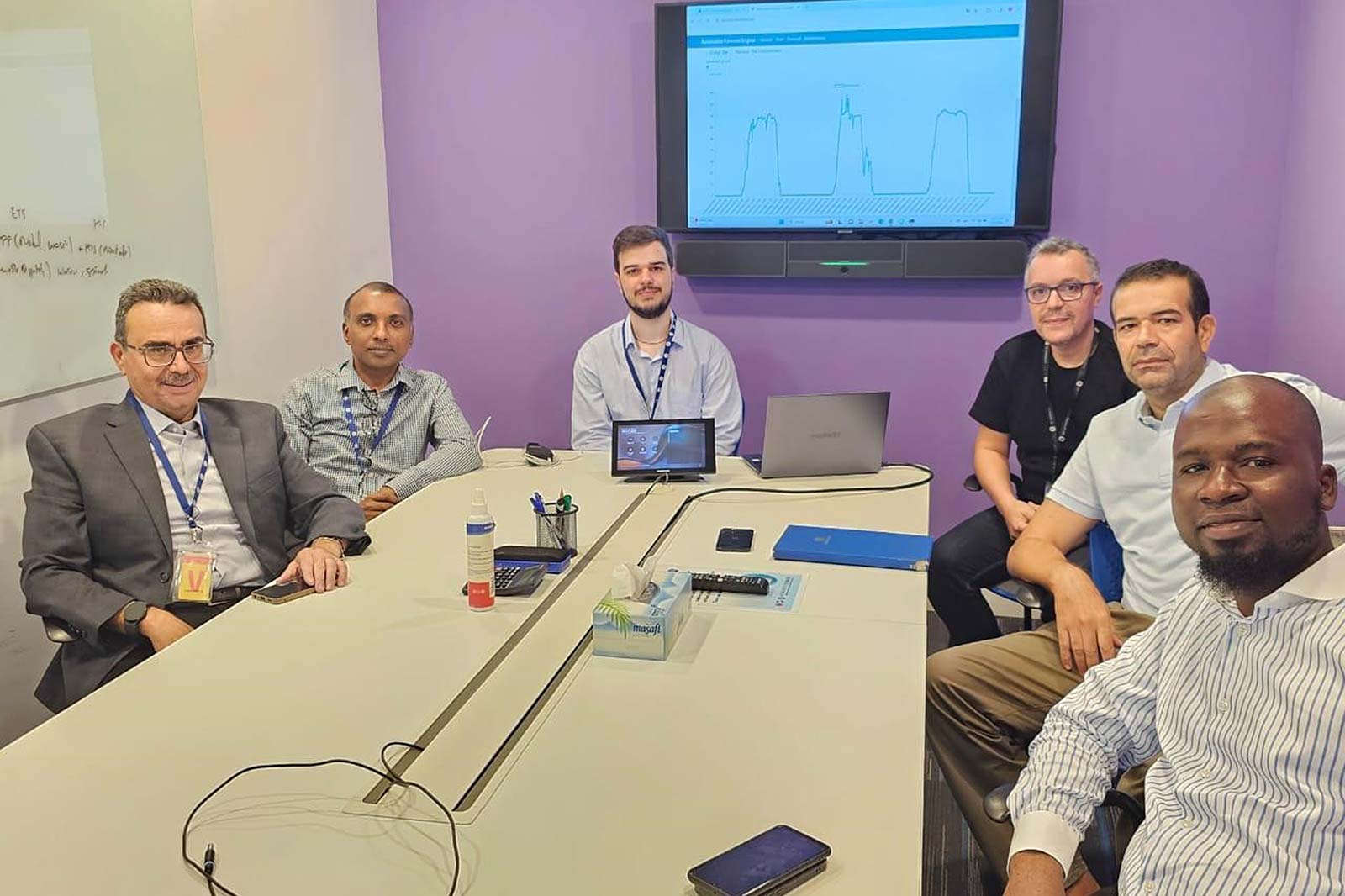
Dubai, September 2024 – The American University in Dubai (AUD) has joined forces with General Electric (GE) Vernova UAE to develop cutting-edge machine learning (ML) models for accurately forecasting renewable energy outputs from photovoltaic (PV) and wind power plants. The collaboration, which aims to create more reliable and efficient energy forecasting systems, recently marked a milestone with a successful technology transfer event held on September 2, 2024, at GE Vernova’s headquarters.
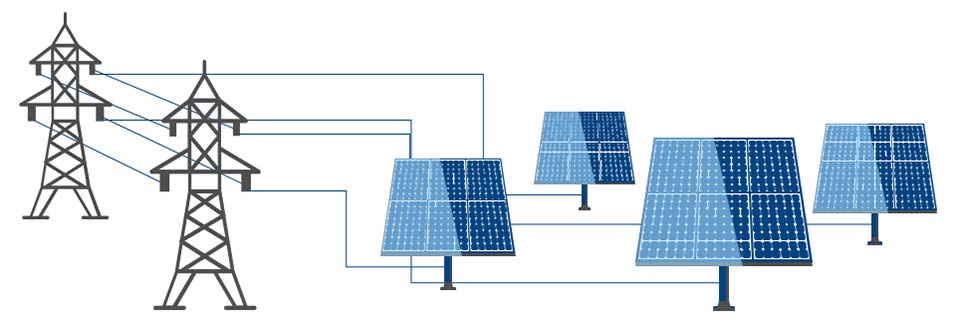
As renewable energy becomes an essential part of the global energy mix, reliable forecasting is critical for grid stability and efficient energy management. With natural resources like solar and wind being variable due to changing weather conditions, accurate predictions are necessary to balance supply and demand, prevent grid overloads, and minimize reliance on backup power from less sustainable sources. The International Energy Agency (IEA) has set ambitious goals, recommending that renewables should make up 30-50% of the global electricity mix by 2030, making accurate forecasting more important than ever.
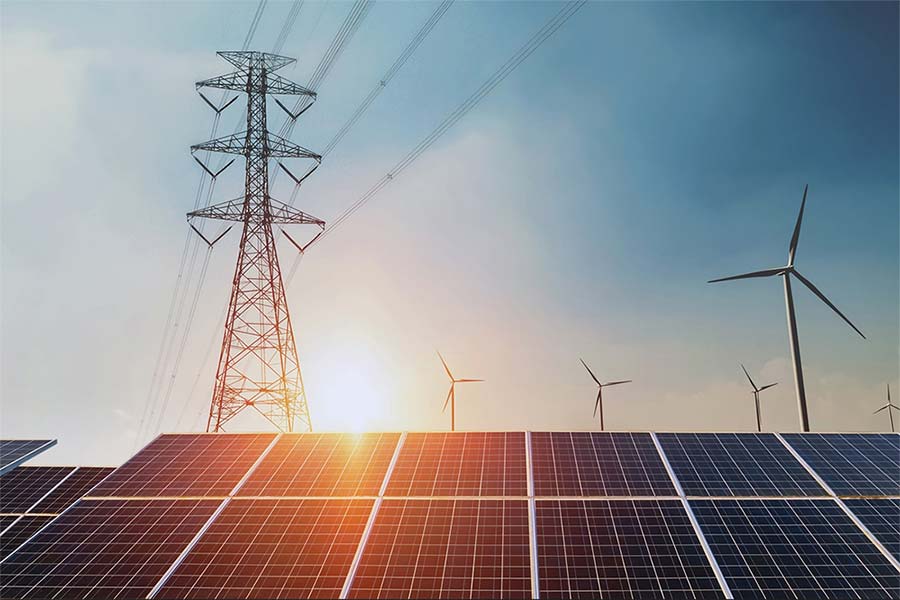
Overcoming Challenges in Renewable Energy Forecasting
The research, led by AUD’s School of Engineering faculty and students, focuses on developing advanced ML models to address the complexities of predicting energy output from solar and wind plants. A key challenge faced in PV forecasting is predicting energy output on cloudy days, where traditional ML models tend to underperform. To tackle this, the team developed a Hybrid ML model that integrates three different algorithms, significantly improving forecasting accuracy for both sunny and cloudy conditions. This innovation was tested using real data from GE’s large PV plants in Dubai, demonstrating improved accuracy, especially on cloudy days.
For wind energy forecasting, the team applied speech denoising techniques to remove noise from wind speed and gust signals. These cleaned signals were then fed into their ML models, resulting in excellent forecasting performance. The ability to more accurately predict wind energy output is vital for ensuring grid stability and maximizing the use of renewable energy.
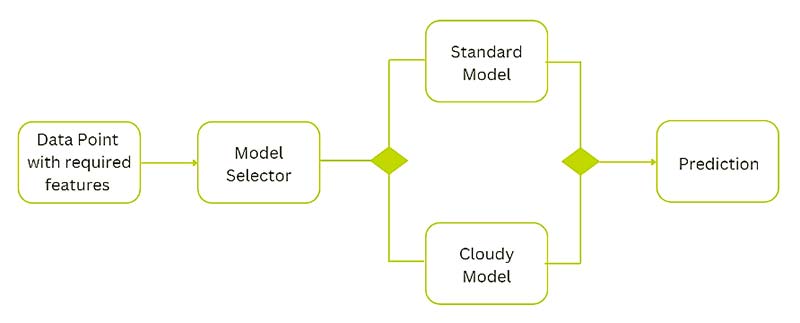
Modernizing Forecasting Systems
In response to GE Vernova’s need to replace an outdated forecasting system, the AUD research team developed a lightweight, user-friendly web application using the Flask framework. By incorporating up-to-date ML libraries like Scikit-Learn and Pandas, the team created an efficient and scalable platform capable of processing large datasets in real-time. This modernized system not only improves forecasting precision but also enhances the operational efficiency of renewable energy plants.
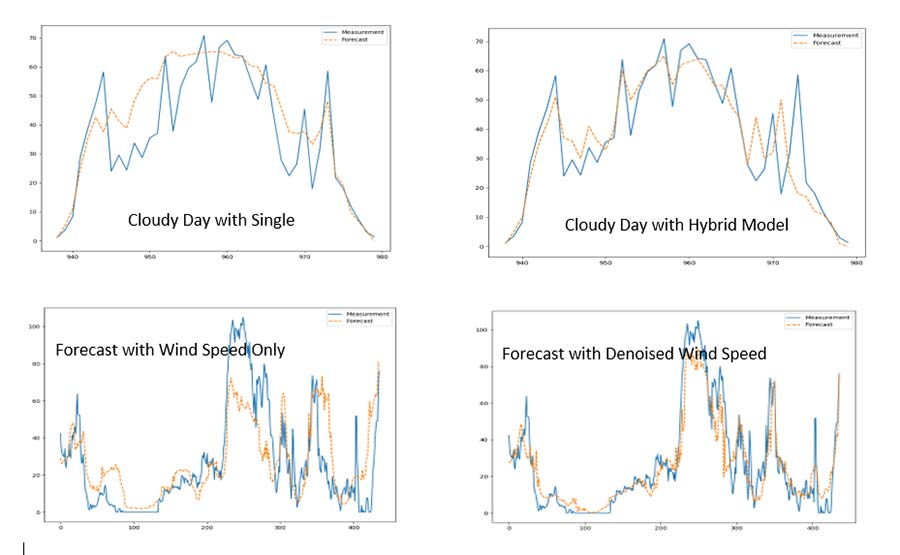
A Successful Collaboration
The collaboration between AUD and GE Vernova underscores the growing importance of industry-academia partnerships in driving innovation in renewable energy. The Tech Transfer event, which took place on September 2, 2024, provided an opportunity for the AUD research team to present their findings and showcase the new forecasting models. The event also highlighted the successful integration of these advanced technologies into GE’s operations, laying the groundwork for future developments in the field.
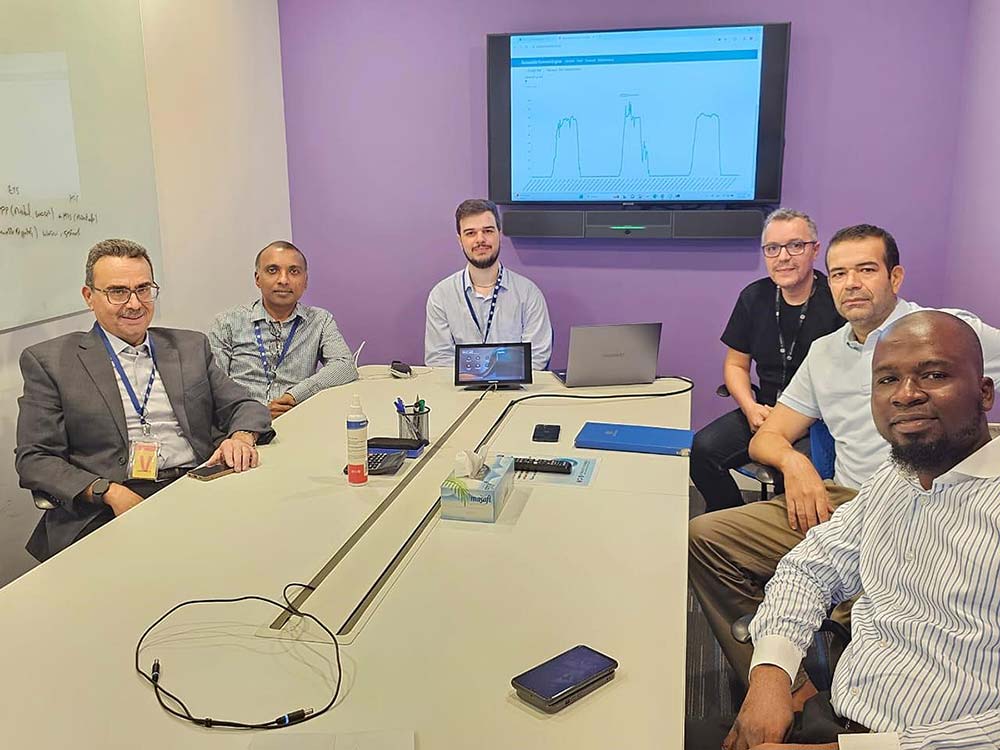
This project, which bridges academia and industry, is a testament to AUD’s commitment to equipping its students with the skills needed to address real-world challenges. By leveraging advanced machine learning techniques and working alongside a global industrial leader like GE Vernova, the team is helping to pave the way for a more sustainable and efficient energy future.